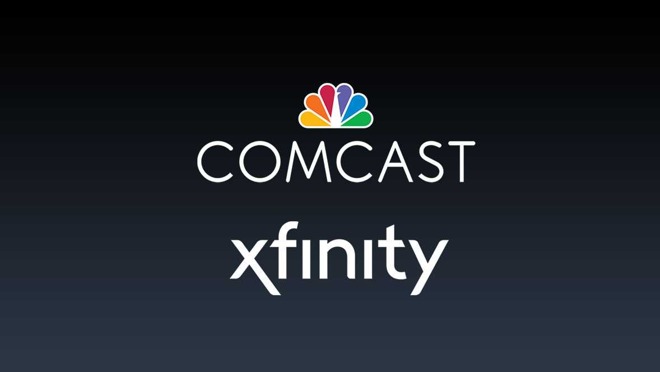Comcast extends 1.2TB monthly Xfinity data cap to nearly all customers
Comcast plans to implement monthly data caps for Xfinity home internet customers across nearly its entire service area in 2021.

Credit: Comcast
The data cap will be 1.2 terabytes a month, and will apply to a slew of states in the northeastern U.S. starting in 2021. A similar cap is already in effect for non-unlimited customers across most of the other areas that Comcast services.
Starting in March, non-unlimited customers who exceed 1.2TB a month will be charged $10 per additional 50GB of data over that limit. The maximum additional charge per month is $100.
To ease users into the new caps, Comcast will give Xfinity customers who aren't on an unlimited plan a credit for any usage over that data cap in January and February.
Comcast will implement the new data caps in Connecticut; Delaware; Massachusetts; Maryland; Maine; New Hampshire; New Jersey; New York; Pennsylvania; Virginia, Vermont; West Virginia; Washington, D.C.; and parts of North Carolina and Ohio.
According to the internet service provider, 95% of its customers don't hit the 1.2TB-a-month threshold.

Credit: Comcast
The data cap will be 1.2 terabytes a month, and will apply to a slew of states in the northeastern U.S. starting in 2021. A similar cap is already in effect for non-unlimited customers across most of the other areas that Comcast services.
Starting in March, non-unlimited customers who exceed 1.2TB a month will be charged $10 per additional 50GB of data over that limit. The maximum additional charge per month is $100.
To ease users into the new caps, Comcast will give Xfinity customers who aren't on an unlimited plan a credit for any usage over that data cap in January and February.
Comcast will implement the new data caps in Connecticut; Delaware; Massachusetts; Maryland; Maine; New Hampshire; New Jersey; New York; Pennsylvania; Virginia, Vermont; West Virginia; Washington, D.C.; and parts of North Carolina and Ohio.
According to the internet service provider, 95% of its customers don't hit the 1.2TB-a-month threshold.

Comments
Caps are just another way they found to maximize profits. Mind you, Cox in Las Vegas is even worse, charging more for less. In every market, whenever a provider has a monopoly on fast broadband, they take advantage and fleece users. It’s about time that PoS Ajit Pai get shown the door and we see some regulation in this area.
You must acknowledge that a small percentage of households are extreme bandwidth users compared to the rest. It’s not necessarily fair to the rest that this small percentage take advantage of everyone else’s bandwidth.
We don’t necessarily have to like any of these companies. But they do spend billions on infrastructure. Do you want that to continue? All I’m saying is, be careful what you wish for. You may get it.
No data cap.
That's in France.
And there are way cheaper alternatives.
Telecom prices in the US are ridiculous.
While the free market is very efficient for consumer goods, some form of regulation seems to help for infrastructure.
Blu-ray discs hold more than that and that technology is about a decade old. And that's just the 1080p stuff, not the more recent 4K Blu-ray content.
Today's modern videogames are FAR larger than Big Sur.
Marvels Avengers is 133GB. And that isn't even the record holder. One of the Call of Duty games clocks in well over 200GB. For PC games, 50GB sizes are pretty routine these days.
I think Microsoft Flight Simulator is about 80GB but requires a high-speed broadband connection because most of the database is stored in the cloud. Apparently all of the data comprises petabytes and keeps growing.
American residential broadband is slow and overpriced compared to what Southeast Asia and Europe gets. US broadband is downright ghetto.
I know someone with a landline DSL only package(no phone), fyi.
So if we’re wanting companies like Comcast to stop extorting their customers, the first thing we should do is invite and pursue real competition. We could also reach out and educate the population about what they’re doing. Etc. The last thing we should do is ask for government intervention, and if we have to the intervention should be aimed toward encouraging competition.
That’s not a libertarian approach, that’s an approach based on common sense and history.